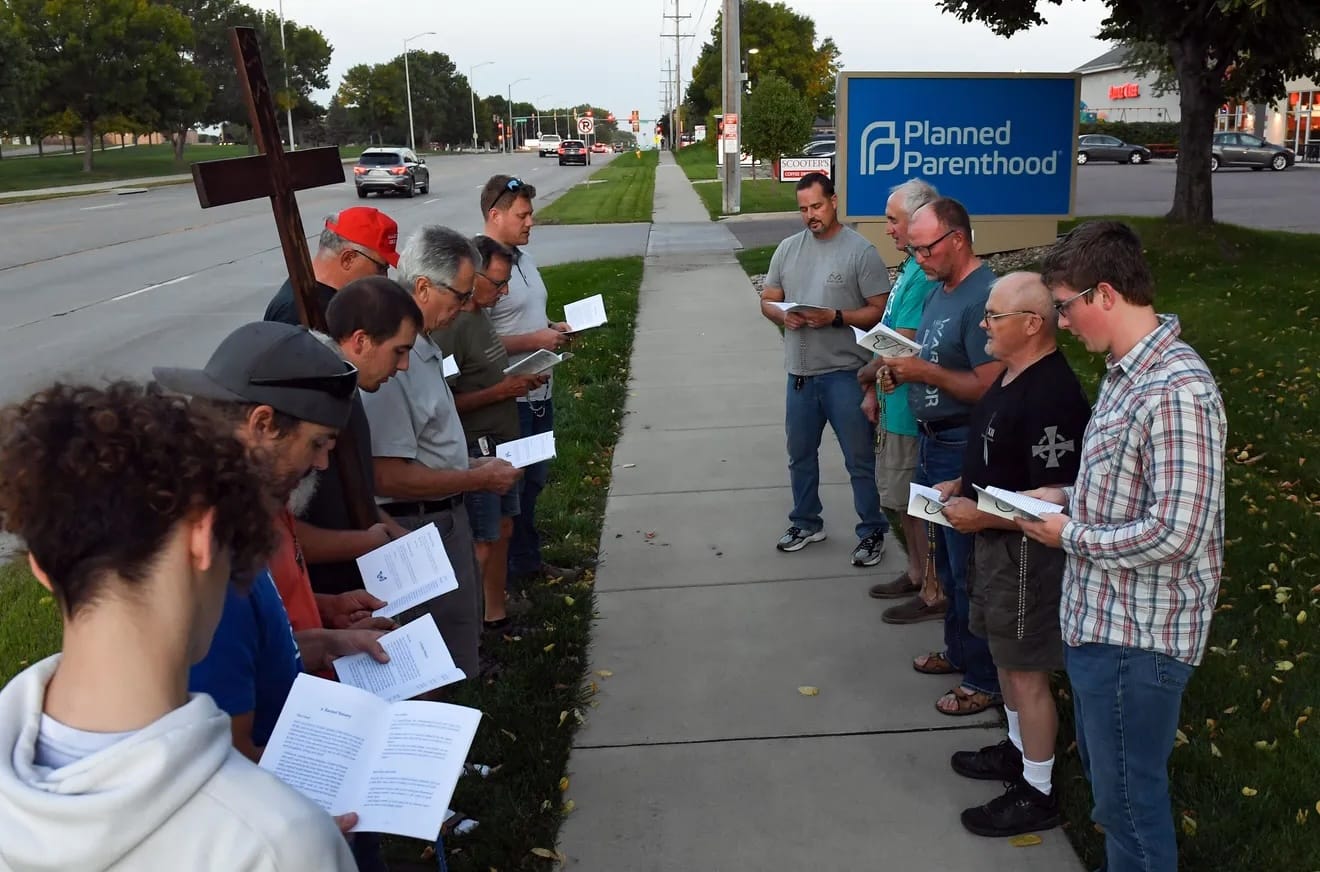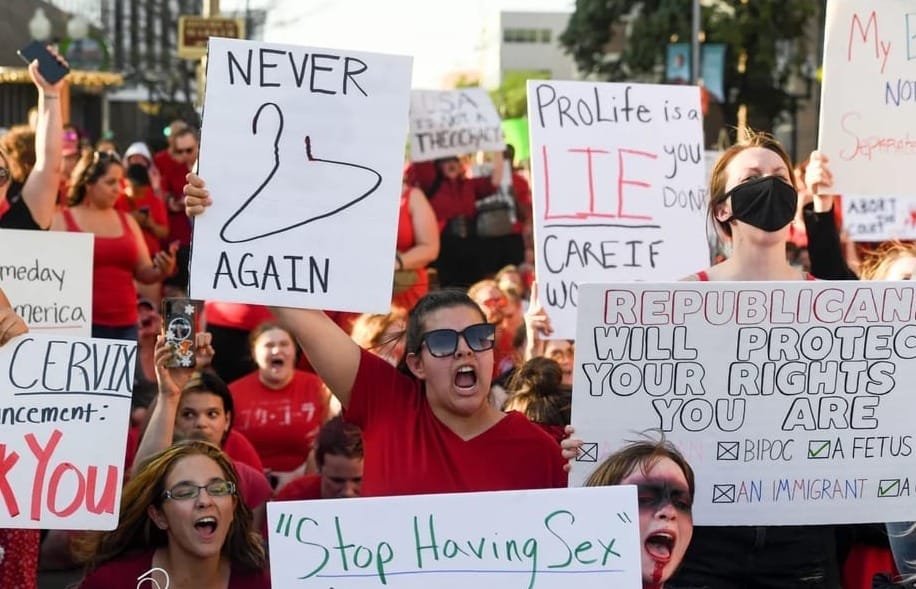The group sponsoring a constitutional amendment to expand South Dakota abortion rights said it will likely file a lawsuit if legislators pass a bill allowing petition signers to withdraw signatures that already have been certified for the ballot.
“I can’t speculate about whether the bill will pass or not,” said Rapid City lawyer Jim Leach, who represents Dakotans for Health, a grassroots organization that pushes for progressive policy through petition efforts. “I can say that if it does pass, there’s certainly a substantial possibility of legal action.”
At issue is House Bill 1244, which would change South Dakota’s ballot initiative process by allowing an individual who signed a petition to withdraw their signature by sending a written notification to the Secretary of State’s office. This could occur after the petition effort has been validated but is still eligible to be challenged through the Secretary of State or court appeal.

The bill, which has an emergency clause allowing it to take effect immediately, passed the House State Affairs Committee on Feb. 14 by a vote of 11-1.
If successful, the legislation would make South Dakota one of five states – along with California, Idaho, Utah and Washington – with a codified process for revocation of petition signatures. No other states allow a citizen to withdraw their signature after a ballot amendment has cleared the certification process.

The bill’s sponsor is Rep. Jon Hansen, R-Dell Rapids, one of the state’s leading anti-abortion advocates as co-chair of the Life Defense Fund, founded specifically to oppose the proposed amendment through its "Decline to Sign" campaign. Hansen is also vice president of South Dakota Right to Life.
Prolonged state battle over abortion
Hansen has sparred regularly with Dakotans for Health executive director Rick Weiland in a high-stakes battle between strongly held pro-life positions in conservative South Dakota and long-established state protections for residents to initiate laws through the petition process.
In a 2022 poll of registered voters co-sponsored by South Dakota News Watch, nearly two-thirds (65%) of respondents said they support having a statewide referendum to determine the state's laws regarding reproductive rights.
The proposed 2024 ballot amendment would enshrine abortion rights in the South Dakota Constitution by following the trimester framework of Roe v. Wade, the landmark 1973 ruling in which the Supreme Court held that the Constitution protected a woman’s right to an abortion prior to the viability of the fetus.
South Dakota is currently under a 2005 state trigger law activated when the Supreme Court overturned Roe and left it up to states to determine reproductive rights with its 2022 ruling in Dobbs v. Jackson Women’s Health Organization.
South Dakota's law makes it a Class 6 felony for anyone “who administers to any pregnant female or prescribes or procures for any pregnant female” a means for an abortion, except to save the life of the mother. South Dakota is one of 14 states whose abortion law does not include exceptions for rape and incest.
South Dakota petition process comes under fire
At the committee hearing for HB 1244, Hansen played videos purporting to show proof of unattended Dakotans for Health petitions, which would violate state law, and of circulators providing misleading information to the public.
He noted that Attorney General Marty Jackley sent a letter to Dakotans for Health on Oct. 31, 2023, that mentioned "video and photographic evidence" of such encounters and warned of potentially illegal actions taken by petition circulators.
Jackley said that his letter was based on "complaints and concerns raised during the petition process" and that violations, if proven, could play a role in the Secretary of State's petition certification process. South Dakota Right to Life was copied on the letter.
"If you obtain petition signatures through fraud or misleading information, that's not democracy," Hansen said during hearing testimony. "We want to ensure that people have (signed) voluntarily and on good information."
Weiland said his group trains petition circulators to follow state law, including handing out slips of paper with the attorney general’s title and explanation of the proposed amendment. He said the larger issue is the harassment his volunteers have experienced at the hands of Life Defense Fund demonstrators.
Leach, when asked about Hansen's allegations, told News Watch: “I think they are deceptive and overblown. I also think that anyone who would rely on Jon Hansen for accurate information on this issue is making a big mistake.”
Hansen didn't respond to questions from News Watch about the potential impact of his signature withdrawal bill and whether the changes are aimed specifically at the proposed abortion amendment.
Weiland's goal for petition: 60,000 signatures
Dakotans for Health needs to collect a minimum of 35,017 signatures to place the abortion amendment on the November 2024 ballot. Weiland told News Watch that his group has collected more than 50,000 signatures, of which 43,000 have gone through an in-house validation process.
"We have another 10,000 that are going through that internal process," added Weiland, whose goal is to submit 60,000 signatures to the Secretary of State's office. The deadline is May 7, but Dakotans for Health might submit the signatures as early as the end of March, he said.
Hansen has said that his group will undertake its own process to verify abortion amendment signatures prior to certification. But HB 1244 would allow opponents of the measure to approach petition signers to potentially withdraw their name as part of an appeal process even if initial signatures are certified.
State law dictates that the appeal would be heard at the circuit court of Hughes County in Pierre.
"That way these challenges would occur under a judge's supervision," Hansen said during the hearing, adding that it's "practically impossible" for an individual to find the exact petition they signed and cross off their name under the current process.
Similar bill struck down in Florida
A similar law in Florida was declared unconstitutional in 2010 by the Florida Supreme Court, which found signature revocation to be politically motivated rather than a "neutral and non-discriminatory protection of citizens’ interests."

In other words, the court found that the law was designed to thwart a particular ballot initiative rather than attempting to improve the petition process as a whole.
The ruling also noted that laws already were in place to prevent fraud or forgery in the ballot initiative process, as there are in South Dakota.
“The statute and its implementing regulations are not well calculated to reduce perceived instances of forgery and fraud,” read the Florida Supreme Court opinion. “To the contrary, they provide initiative opponents an unchecked, unopposed opportunity to ‘persuade’ Florida electors … to revoke their signatures based upon these opponents’ strident disagreement with the underlying initiative proposals.”
Abortion battlegrounds take shape
Zebadiah Johnson, representing the Voter Defense Association of South Dakota, spoke at the Feb. 14 committee hearing about signature withdrawal campaigns that have occurred in states with revocation laws.
He warned of a "sudden disruption" to the signature gathering process that would occur with less than three months before the petition deadline, an argument also made by the Florida Supreme Court's majority opinion in 2010.
"Initiative proponents will likely receive no notice with regard to how many of their gathered, signed petition forms have been revoked until it is too late to gather, submit, and verify additional signatures," the court wrote. "The politically charged counter-petition revocation campaigns created by these provisions in operation would essentially eviscerate and render meaningless the citizen-initiative process."
The proposed amendment reflects a national trend of progressive groups using the ballot initiative process to gain ground on abortion rights since the Supreme Court rolled back federal protections by overturning Roe v. Wade.
Election wins have come in conservative states such as Ohio, where 57% of voters approved a constitutional amendment in November 2023 that ensured access to abortion and other forms of reproductive health care.
In Kansas, voters overwhelmingly rejected a 2022 constitutional amendment that would have allowed the Republican-led Legislature to tighten restrictions or ban abortion outright, with 59% voting against the amendment.
Petition efforts are also under way in states such as Arizona, Florida, Nevada and Nebraska to try to put the issue before voters in 2024, a presidential election year in which high turnout is expected.
Lawmakers formally oppose abortion amendment
The South Dakota Legislature has passed House Concurrent Resolution 6008, which formalizes opposition to the abortion amendment and asserts that the proposed law would "fail to protect human life, would fail to protect a pregnant woman, and would fail to protect the child she bears."

The resolution passed the House 63-7 and the Senate 29-3.
Weiland, testifying against the resolution at a Feb. 7 committee hearing after wheeling in 50,000 signed petitions, called out inaccuracies in the language and asserted that South Dakota voters have twice rejected extreme abortion bans at the polls.
In 2006, the Legislature passed a law to ban all abortions except those to save the life of a pregnant woman. The measure was signed by then-Gov. Mike Rounds, but opponents gathered enough signatures to refer it to the ballot, where it was defeated with more than 55% percent of the vote.
Two years later, voters rejected by a margin of 55% to 45% a ballot initiative that would have banned all abortions in the state except in cases of rape or incest or “to preserve the health or life of the woman.”
South Dakota's current law is among the nation's most restrictive, and Weiland said anti-abortion factions are worried about letting voters have their say.
A November 2023 poll of registered voters co-sponsored by News Watch showed a potentially close race, with 45.6% of respondents supporting the proposed constitutional amendment and 43.6% opposed.
"These are acts of desperation," Weiland said of legislative efforts to hinder the ballot initiative process. "They're worried about what might happen when people, not politicians, make these decisions."
Petition laws have faced challenges in South Dakota
Leach portrayed HB 1244 as the latest attempt by Hansen and other Republican leaders to disrupt the rights of citizens to petition their government. The ballot initiative process dates back more than 125 years in South Dakota and was extended to include constitutional amendments in 1972.
Hansen, a Dell Rapids lawyer who was first voted into the Legislature in 2010, has sponsored several pieces of legislation that curtailed ballot initiative procedures and were later declared unconstitutional.
In 2019 he sponsored House Bill 1094, creating a state registry of petition circulators and requiring them to submit personal information and wear ID badges. Leach sued along with liberal blogger Cory Heidelberger, saying the law violated circulators’ First Amendment rights based on their political viewpoint, and the law was struck down.
In 2020 Hansen sponsored Senate Bill 180, with a similar objective as HB 1094 but focused solely on paid circulators. U.S. District Judge Larry Piersol issued a preliminary injunction in response to a lawsuit from Leach and Dakotans for Health. And in 2022 the Eighth Circuit U.S. Court of Appeals upheld the injunction, calling the law’s pre-circulation disclosure requirements “intrusive and burdensome … as such, they are a severe burden on speech.”
Hansen also sponsored Amendment C, which was placed on the 2022 primary ballot and would have required a 60% vote (rather than simple majority) for ballot measures that raise taxes or spend $10 million in general funds in their first five years. That amendment, viewed as a preemptive strike against Medicaid expansion, was rejected by 67% of voters.
Asked if the signature withdrawal bill continues a pattern of trying to alter the ballot amendment process, Leach told News Watch that Hansen and his supporters are "scraping the bottom of the barrel" as the election draws nearer.
"I'm just shaking my head at all this," Leach said. "We plan to keep fighting to preserve the rights of citizens to propose and vote on the laws they're going to be subject to."






